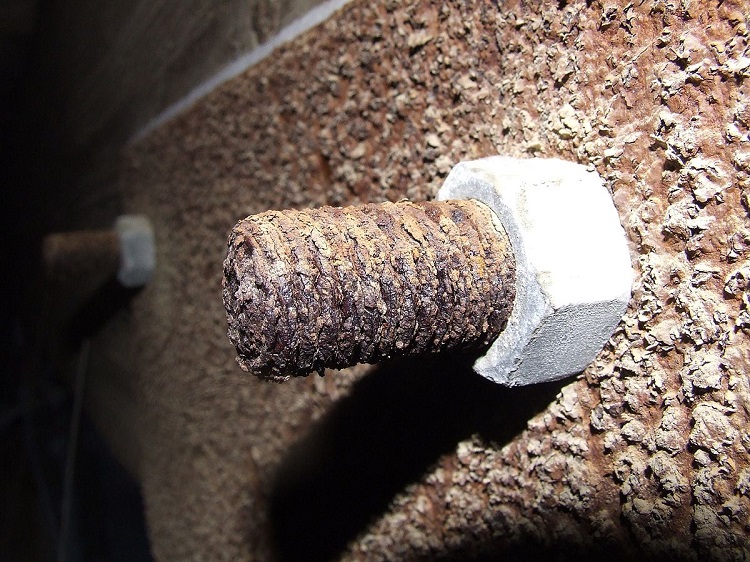Corrosion is a chemical process that converts a metal surface to an oxide, hydroxide or sulphide. There are different types of corrosion and let us look at a few of them below.

Uniform Corrosion – This is the most common type of corrosion and occurs equally on the surface of the metals. It can occur easily on metal surfaces and it can be easily identified or even judged before it can damage fully.
Pitting Corrosion – This is one of the most destructive types of corrosion and it is hard to predict and detect. It occurs in a localized area on the metal and form a hole or cavity. The cavity might be of different shapes. This type has the ability to penetrate the metal body vertically and make a through hole. It is usually caused by non-uniform surface finish on the metal.
Crevice Corrosion – It is also similar to pitting corrosion but occurs due to difference in ion concentration between two areas of metal. It usually occurs in areas like washers, bolt heads, gaskets etc. Because these are the places where oxygen supply is restricted. With proper joint designs crevice corrosion can be eliminated. Also, if parts get stuck, you can use a rust penetrant spray to loosen bolts.
Stress Corrosion Cracking – It occurs due to the combination of corrosive environment along with tensile stress at elevated temperatures. This type of corrosion results in deformations in the microstructure of the metal surface. This results in surface cracks that has brittle appearance to it.
Galvanic Corrosion – This corrosion occurs usually in a metal joint of a two electrochemically dissimilar metals. Popular examples include copper and steel in saltwater environment.
These are some of the common types of corrosion you can witness in metals. It is important to prevent the parts from these corrosions. You can easily find out the nature and initiation of a corrosion. If you had found that out, you can easily prevent it from fully damaging. Some of the metals that are most vulnerable to oxidation include iron, titanium, and aluminium. The other, more common types of corrosion resistant metals include copper, zinc, tin, phosphorous, lead, and gold.
Oxidized metals do not necessarily indicate that corrosion resistance has already occurred; it simply means that there has been a previous corrosion process taking place. The best method to determine if your metal part is at risk for corrosion resistance is to contact a professional dealer and learn all you can about the different types of corrosion resistant metals and what each type has to offer. Use appropriate materials to clean and fight off the corrosive particles so that it doesn’t spread further and affect the metal body.
